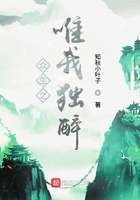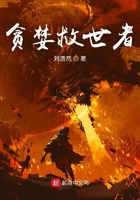This coalition, after repulsing the barbarian, soon afterwards split into two sections, which included the Hellenes who had revolted from the King, as well as those who had aided him in the war. At the end of the one stood Athens, at the head of the other Lacedaemon, one the first naval, the other the first military power in Hellas. For a short time the league held together, till the Lacedaemonians and Athenians quarrelled and made war upon each other with their allies, a duel into which all the Hellenes sooner or later were drawn, though some might at first remain neutral. So that the whole period from the Median war to this, with some peaceful intervals, was spent by each power in war, either with its rival, or with its own revolted allies, and consequently afforded them constant practice in military matters, and that experience which is learnt in the school of danger.
The policy of Lacedaemon was not to exact tribute from her allies, but merely to secure their subservience to her interests by establishing oligarchies among them; Athens, on the contrary, had by degrees deprived hers of their ships, and imposed instead contributions in money on all except Chios and Lesbos. Both found their resources for this war separately to exceed the sum of their strength when the alliance flourished intact.
Having now given the result of my inquiries into early times, Igrant that there will be a difficulty in believing every particular detail. The way that most men deal with traditions, even traditions of their own country, is to receive them all alike as they are delivered, without applying any critical test whatever. The general Athenian public fancy that Hipparchus was tyrant when he fell by the hands of Harmodius and Aristogiton, not knowing that Hippias, the eldest of the sons of Pisistratus, was really supreme, and that Hipparchus and Thessalus were his brothers; and that Harmodius and Aristogiton suspecting, on the very day, nay at the very moment fixed on for the deed, that information had been conveyed to Hippias by their accomplices, concluded that he had been warned, and did not attack him, yet, not liking to be apprehended and risk their lives for nothing, fell upon Hipparchus near the temple of the daughters of Leos, and slew him as he was arranging the Panathenaic procession.
There are many other unfounded ideas current among the rest of the Hellenes, even on matters of contemporary history, which have not been obscured by time. For instance, there is the notion that the Lacedaemonian kings have two votes each, the fact being that they have only one; and that there is a company of Pitane, there being simply no such thing. So little pains do the vulgar take in the investigation of truth, accepting readily the first story that comes to hand. On the whole, however, the conclusions I have drawn from the proofs quoted may, I believe, safely be relied on. Assuredly they will not be disturbed either by the lays of a poet displaying the exaggeration of his craft, or by the compositions of the chroniclers that are attractive at truth's expense; the subjects they treat of being out of the reach of evidence, and time having robbed most of them of historical value by enthroning them in the region of legend. Turning from these, we can rest satisfied with having proceeded upon the clearest data, and having arrived at conclusions as exact as can be expected in matters of such antiquity. To come to this war: despite the known disposition of the actors in a struggle to overrate its importance, and when it is over to return to their admiration of earlier events, yet an examination of the facts will show that it was much greater than the wars which preceded it.
With reference to the speeches in this history, some were delivered before the war began, others while it was going on; some Iheard myself, others I got from various quarters; it was in all cases difficult to carry them word for word in one's memory, so my habit has been to make the speakers say what was in my opinion demanded of them by the various occasions, of course adhering as closely as possible to the general sense of what they really said. And with reference to the narrative of events, far from permitting myself to derive it from the first source that came to hand, I did not even trust my own impressions, but it rests partly on what I saw myself, partly on what others saw for me, the accuracy of the report being always tried by the most severe and detailed tests possible.
My conclusions have cost me some labour from the want of coincidence between accounts of the same occurrences by different eye-witnesses, arising sometimes from imperfect memory, sometimes from undue partiality for one side or the other. The absence of romance in my history will, I fear, detract somewhat from its interest; but if it be judged useful by those inquirers who desire an exact knowledge of the past as an aid to the interpretation of the future, which in the course of human things must resemble if it does not reflect it, Ishall be content. In fine, I have written my work, not as an essay which is to win the applause of the moment, but as a possession for all time.
The Median War, the greatest achievement of past times, yet found a speedy decision in two actions by sea and two by land. The Peloponnesian War was prolonged to an immense length, and, long as it was, it was short without parallel for the misfortunes that it brought upon Hellas. Never had so many cities been taken and laid desolate, here by the barbarians, here by the parties contending (the old inhabitants being sometimes removed to make room for others);never was there so much banishing and blood-shedding, now on the field of battle, now in the strife of faction. Old stories of occurrences handed down by tradition, but scantily confirmed by experience, suddenly ceased to be incredible; there were earthquakes of unparalleled extent and violence; eclipses of the sun occurred with a frequency unrecorded in previous history; there were great droughts in sundry places and consequent famines, and that most calamitous and awfully fatal visitation, the plague. All this came upon them with the late war, which was begun by the Athenians and Peloponnesians by the dissolution of the thirty years' truce made after the conquest of Euboea. To the question why they broke the treaty, I answer by placing first an account of their grounds of complaint and points of difference, that no one may ever have to ask the immediate cause which plunged the Hellenes into a war of such magnitude. The real cause I consider to be the one which was formally most kept out of sight. The growth of the power of Athens, and the alarm which this inspired in Lacedaemon, made war inevitable. Still it is well to give the grounds alleged by either side which led to the dissolution of the treaty and the breaking out of the war.















